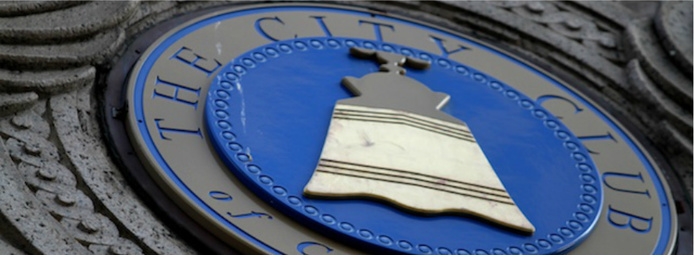Monday, March 09, 2020
#FREESPEECH in the News March 9, 2020

As the Citadel of Free Speech here in Cleveland, we work to protect and promote the basis of our democracy by sharing related stories, commentary, and opinions on free speech in the 21st century. Here's what's making the news – and what you should know about – in the past week.
1.) Nevada high court defends Tahoe bear activists' free speech
Social media comments about protecting bears that were posted by Lake Tahoe activists referring to a longtime wildlife biologist as a murderer constitute “good faith communications” protected as free speech, the Nevada Supreme Court says. The recent opinion doesn't end a lawsuit filed in Washoe County District Court in Reno.
The lawsuit is the latest development in a years-long legal and public relations battle between the agency and a group of activists who oppose state methods for managing bears. In 2018, a judge issued a protective order to keep Stark, who lives in the community of Incline Village, away from another state biologist who says Stark stalked her in a dispute over the capture of nuisance bears.
The high court's opinion is a victory for Stark, who argued she was being unjustly targeted for her activism, and a setback for Lackey, who claims harm from the hostile posts.
Activist Gene Stilp likes to show his displeasure with President Donald Trump by setting things on fire, usually, he torches flags. A health and safety ordinance of the City of Harrisburg doesn’t allow him to ignite anything in a public venue, however.
That’s a violation of his free speech rights, Stilp claims in a newly filed federal lawsuit. Stilp, who describes himself as a “prominent political activist,” contends in the U.S. Middle District Court complaint that his right to political expression should trump the restrictions of the city’s burn ordinance.
Last month, he convinced a district judge in Harrisburg to throw out a citation he was issued for violating the burn ordinance during a one-man anti-Trump protest he staged at the state Capitol Complex in December. District Judge David O’Leary voided the citation after concluding the ordinance is so broad it could squelch political free speech.
3.) Judge rejects Tulsi Gabbard’s ‘free speech’ lawsuit against Google
Last July, Hawaii representative and longshot Democratic presidential hopeful Tulsi Gabbard filed a lawsuit against Google, accusing the company of violating her First Amendment rights to free speech when it briefly suspended her campaign’s ad account. On Wednesday, California’s Central District Court rejected the suit outright.
Gabbard’s campaign, Tulsi Now, Inc., asked for $50 million in damages from Google for “serious and continuing violations of Tulsi’s right to free speech.” In the suit, her campaign claimed that Google “helps to run elections” through political advertising and search results — an argument District Judge Stephen Wilson firmly rejected.
In dismissing the case, Wilson writes that what Gabbard “fails to establish is how Google’s regulation of its own platform is in any way equivalent to a governmental regulation of an election.” When it comes to Google, “an undisputedly private company,” the First Amendment’s free speech protections do not apply. A week ago, another California court reached the same conclusion in a case that right-wing group PragerU brought against YouTube.





